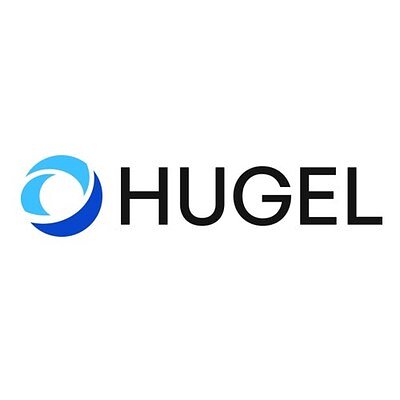
Hugel's Aesthetic Boom: Korean Firm Challenges Industry Giants with Global Expansion & Diversification
South Korean aesthetics company Hugel is rapidly gaining ground in the global market, fueled by strong demand for its injectables and a strategic push into the cosmetics sector. Can it disrupt established industry leaders?
Hugel’s Aesthetic Boom: Korean Firm Challenges Industry Giants with Global Expansion & Diversification
Seoul, South Korea – November 15, 2025 – Hugel Inc., a publicly traded South Korean medical aesthetics company, is making significant waves in a rapidly expanding global market. Recent financial results reveal a strong third quarter, with net sales reaching KRW 105.9 billion – marking the second consecutive quarter exceeding the KRW 100 billion threshold. Beyond impressive topline growth, Hugel’s success story hinges on a strategic diversification into cosmetics and a targeted international expansion, positioning the company as a rising challenger to established industry leaders like Allergan, Galderma, and Merz.
Strong Financial Performance Driven by Global Demand
Hugel’s Q3 2025 results showcase a robust performance across its core product lines. Operating profit reached KRW 47.4 billion, and net income hit KRW 38 billion, supported by a healthy 77% gross profit margin. The company attributes this success to strong global sales of its botulinum toxin (branded as Letybo) and hyaluronic acid dermal fillers (Revolax), coupled with a surprising surge in its cosmetics business.
“The numbers speak for themselves,” said an industry analyst familiar with Hugel’s performance. “They’ve consistently delivered strong growth, even in a competitive landscape. Their ability to penetrate key international markets is particularly impressive.”
Exports account for approximately 80% of Hugel’s toxin and filler sales, demonstrating a clear focus on international expansion. The US, China, Europe, and Brazil currently account for 45% of total revenue, signifying the strategic importance of these regions.
Diversification Beyond Injectables: A Strategic Move
While injectables remain a core component of Hugel’s business, the company's foray into cosmetics is proving to be a game-changer. Cosmetics brands WELLAGE and BYRYZN BR saw a remarkable 65% year-over-year increase in net sales during Q3, reaching KRW 14.9 billion.
“Diversification is key to long-term sustainability in this industry,” explains a cosmetics industry expert. “Relying solely on injectables can be risky, given evolving trends and regulatory changes. Hugel’s move into cosmetics allows them to capture a wider range of consumers and build brand loyalty.”
The success of the cosmetics division appears to be fueled by a shift toward natural and effective skincare solutions, combined with savvy social media marketing. Hugel has effectively leveraged social media platforms to build brand awareness and engage with consumers.
Navigating a Competitive Landscape
The global medical aesthetics market is fiercely competitive, dominated by established players with decades of experience and substantial resources. Allergan (now part of AbbVie) remains the market leader, renowned for its Botox and Juvederm brands. Galderma and Merz Pharmaceuticals also hold significant market share.
“Hugel is facing some formidable competition,” acknowledges an industry observer. “But they are demonstrating a remarkable ability to innovate and adapt. Their focus on emerging markets, coupled with their diversified product portfolio, is giving them a competitive edge.”
Hugel is strategically targeting markets with high growth potential, particularly in Asia and South America. The company is also investing heavily in research and development, seeking to create innovative products that meet the evolving needs of consumers.
The Rise of Korean Beauty & Global Trends
Hugel’s success is also intertwined with the growing global influence of Korean beauty (K-beauty). K-beauty products and skincare routines have gained immense popularity worldwide, driven by a focus on innovation, quality, and natural ingredients.
“Korean beauty has fundamentally changed the beauty industry,” says a consumer trends analyst. “Consumers are increasingly seeking out innovative products and skincare routines that deliver visible results. Hugel is well-positioned to capitalize on this trend.”
The growing demand for minimally invasive aesthetic procedures is another key driver of market growth. Consumers are increasingly opting for non-surgical treatments to address signs of aging and enhance their appearance. This trend is fueling demand for both botulinum toxins and dermal fillers.
Looking Ahead: Challenges and Opportunities
Despite its impressive performance, Hugel faces several challenges. Intense competition, evolving regulatory requirements, and potential economic headwinds all pose risks to its future growth. However, the company is well-positioned to overcome these challenges and capitalize on emerging opportunities.
“The medical aesthetics market is expected to continue growing rapidly in the coming years,” says an industry insider. “Hugel has the potential to become a major player in this market, but it will need to continue innovating and adapting to stay ahead of the competition.”
The company's commitment to research and development, coupled with its strategic international expansion and diversified product portfolio, positions it for continued success. As the global demand for aesthetic procedures and skincare solutions continues to rise, Hugel is poised to capitalize on these trends and solidify its position as a leading innovator in the industry. The company's ability to blend Korean beauty innovation with global market ambitions is a key factor in its burgeoning success story.
